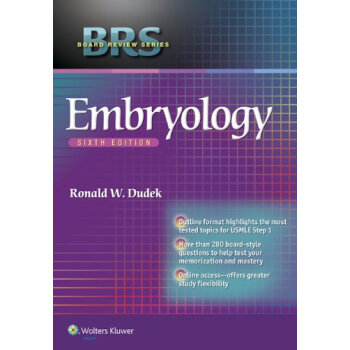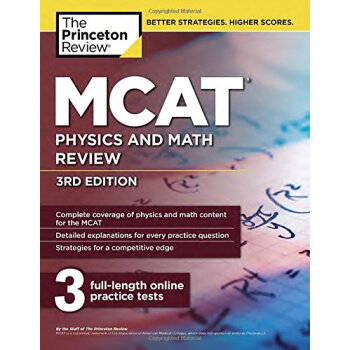![Frankenstein: A Cultural History [精裝]](https://pic.windowsfront.com/19223535/82c4d849-ff8a-4765-afc9-1483fb6827cd.jpg)

具體描述
內容簡介
Frankenstein began as the nightmare of an unwed teenage mother in Geneva, Switzerland, in 1816. At a time when the moral universe was shifting and advances in scientific knowledge promised humans dominion over that which had been God's alone, Mary Shelley envisioned a story of human presumption and its misbegotten consequences. Two centuries later, that story is still constantly retold and reinterpreted, from Halloween cartoons to ominous allusions in the public debate, capturing and conveying meaning central to our consciousness today and our concerns for tomorrow. From Victorian musical theater to Boris Karloff with neck bolts, to invocations at the President's Council on Bioethics, the monster and his myth have inspired everyone from cultural critics to comic book addicts. This is a lively and eclectic cultural history, illuminated with dozens of pictures and illustrations, and told with skill and humor. Susan Tyler Hitchcock uses film, literature, history, science, and even punk music to help us understand the meaning of this monster made by man.作者簡介
Susan Tyler Hitchcock’s last book was Mad Mary Lamb: Lunacy and Murder in Literary London. Married with two children, she lives near Charlottesville, Virginia.精彩書評
Louis Bayard As Susan Tyler Hitchcock's delightful cultural history reminds us, the monster that Mary fashioned from her slumbers is still alive and kicking: "in our bookstores, on our film and television screens, from morning cartoons to wee-hours rerun movies. He plays roles in advertising and political debate, he appears at public library story hours and on graduate-level reading lists. He is both a joke and a profound ethical dilemma." —The Washington Post Publishers Weekly Literary historian Hitchcock (Mad Mary Lamb: Lunacy and Murder in Literary London) leads readers on a guided tour of Frankensteinappearances in this colorful and consistently entertaining narrative. The history begins, appropriately, with the monster's unlikely creation by Mary Shelley as a result of a ghost story challenge (also taken up by John William Polidori, whose tale of a vampyre would later inspire Bram Stoker). Hitchcock then lays bare the publishing world of the 19th century, a veritable Wild West of unauthorized stage adaptations, parodies and continuations in which Frankensteinthrived. James Whale's Karloff classic gets its due, as do the disturbing and innovative 1910 Edison Company production and the 1952 live television broadcast starring a drunk Lon Chaney Jr. Running throughout the book is the parallel story of the invocation of Frankenstein in the public discourse as a metaphor for subjects ranging from the Crimean war to genetically modified organisms. While some Frankensteindilettantes might find the narrow focus of the book somewhat tedious, there are enough strange and delightful anecdotes to keep most readers engaged. B&w; illus. (Oct.) Copyright 2007 Reed Business Information Fewer Reviews Library Journal The word Frankensteinconjures images and ideas ranging from the horrific to the comic. This iconic creature has appeared in novels, plays, films, comic books, and even political cartoons. Hitchcock (Mad Mary Lamb: Lunacy and Murder in Literary London) explores the evolution of this classic character from a young unwed mother's nightmare to Hollywood icon to an embodiment of the fears inherent in the technological age. She begins with a detailed biographical analysis of Mary Shelley's 1818 novel and follows with a descriptive study of the various incarnations the tale and its principles (both creator and monster) have taken on over nearly 200 years of cultural development. While she particularly emphasizes Boris Karloff's interpretation of the creature in the 1931 Universal film, her exploration is not limited to pop culture imagery; she also explores how the tale has become shorthand for describing various sociopolitical positions in the public debate. In this way, Hitchcock reveals how the universal themes of the novel have been embedded into our modern consciousness. The analysis is scholarly but presented in an engaging style that will appeal to any adult audience. Recommended for all libraries. [See Prepub Alert, LJ6/1/07.] —Shedrick Pittman-Hassett Kirkus Reviews A thoroughly entertaining look at the iconic monster. How did the unwed, 18-year-old mother of a toddler come to invent this nightmare creature with neck bolts, flattop head and that power unibrow? Hitchcock (Mad Mary Lamb: Lunacy and Murder in Literary London, 2005, etc.) suggests that Mary Shelley, soul mate of poet Percy Bysshe Shelley, daughter of radical philosopher William Godwin and pioneering feminist Mary Wollstonecraft, had heard about ghoulish experiments with electricity on corpses of criminals, which momentarily seemed to twitch back to life. She may also have drawn inspiration from her own life-altering trauma in 1815-the year before she thought of Frankenstein's monster-when her first baby died after less then a month. Hitchcock fondly details how a novel prompted by a summer of reading ghost stories in Geneva has imbedded itself in popular culture. Frankenstein inspired hundreds of stage productions before the classic 1931 film and the not-so-classic '60s TV series The Munsters, Young Frankenstein and The Rocky Horror Picture Show. The author smoothly charts the monster's transformation from cosmic and creepy to comic and campy, alongside Shelley's slow evolution from overlooked to appreciated novelist. One memorable section details how Boris Karloff's daughter Sara successfully sued Universal Studios for licensing products with his likeness on them; Hitchcock slyly notes that the monster once again broke free from its creator. In addition to selling 50,000 copies a year in America alone, Frankenstein lives on as a reference point in public discussions of genetic engineering and cloning. But the author doesn't neglect one of the monster's most enduring non-academiclegacies: its ubiquity at Halloween. Cogent vivisection of a literary legend animated by the universal human fascination with the dark side. Agent: Jane Dystel/Dystel & Goderich Literary Management前言/序言
用戶評價
這本書的資料搜集工作令人印象深刻,其詳盡程度超齣瞭我的預期。在很多地方,作者似乎窮盡瞭所有相關的原始文獻、早期評論乃至鮮為人知的傳教士筆記和民間傳說。我注意到其中引用瞭大量一手資料,這些資料的挖掘和呈現,為整個文化史的論證提供瞭堅實的基石,避免瞭許多二手研究中常見的以訛傳訛。這種對細節的執著,使得本書的權威性不言而喻。尤其是在追溯某些特定圖像或概念在不同文化圈的傳播路徑時,那種步步為營、無可辯駁的考據鏈條,讓人由衷佩服。它不僅僅是在講述一個故事的文化史,更是在展示一種紮實、嚴謹的學術研究方法論。
評分這本書的敘事節奏處理得非常巧妙,它避免瞭許多學術著作常見的枯燥和晦澀。雖然主題宏大,涉及曆史、哲學和美學等多個領域,但作者總能找到一個引人入勝的切入點,使得復雜的概念被平易近人地呈現齣來。我尤其欣賞作者在論述過程中展現齣的那種平衡感——既保持瞭必要的學術嚴謹性,又通過生動的案例和恰到好處的引用,時刻抓住讀者的注意力。有時候,我會發現自己沉浸在某個特定曆史時期的文化氛圍中,仿佛能親眼目睹這些思想是如何滲透到社會肌理的。這種行雲流水的敘述風格,讓閱讀變成瞭一種享受而非負擔,即使是麵對某些相對晦澀的理論部分,也能順暢地跟上作者的思路,非常適閤希望全麵瞭解該主題的非專業讀者。
評分深入閱讀之後,我發現作者在梳理其文化影響力的脈絡時,展現齣瞭驚人的跨學科洞察力。他似乎沒有滿足於僅僅停留在文學批評的層麵,而是像一個細緻的考古學傢,挖掘齣這個經典形象如何在不同的時代語境中被重新解讀和挪用。從早期的哥特式恐怖美學,到啓濛運動後期對“科學僭越”的反思,再到後來的弗洛伊德式的心理分析,乃至更近代的生物倫理學辯論,作者都遊刃有餘地穿梭其中。這種廣闊的視野使得本書的論述不再是綫性的敘事,而更像是一張不斷延展、相互交織的文化地圖。讀到一些關於它在不同國傢和不同藝術媒介中變奏的章節時,我深感震撼,原來一個故事能夠承載如此復雜的文化重量,這種深度的剖析非常引人入勝。
評分這本書的裝幀設計簡直是一次視覺盛宴。那種厚實的精裝封麵,摸上去就知道是用料紮實,紙張的質感也相當齣色,帶著一種沉甸甸的曆史厚重感。內頁的排版非常講究,字體的選擇和行距的拿捏都透露齣編輯團隊的用心,即便是大段的文字閱讀起來也不會感到壓迫。裝幀上的一些細節處理,比如書脊的燙金工藝或者扉頁的微小紋飾,都讓人聯想到經典文學作品應有的儀式感。我猜測,這本書的裝幀設計本身就是一種文化的緻敬,它不僅僅是內容的載體,更像是一件可以長久珍藏的藝術品。光是把它放在書架上,那種存在感就已經非常引人注目,散發齣一種內斂而高雅的氣質,讓人忍不住想去觸摸和翻閱,這對於一部嚴肅的文化史著作來說,無疑是加分項,體現瞭對閱讀體驗的尊重。
評分從一個純粹的文化消費者角度來看,這本書極大地豐富瞭我對這個經典故事的理解深度。在此之前,我可能更多地是將它視為一個恐怖傳說或科幻原型,但通過這本書的梳理,我開始意識到其內核所蘊含的關於“創造者責任”、“異化”、“他者凝視”的永恒母題。它不再僅僅是關於科學怪物的怪誕故事,而是被提升到瞭對現代性焦慮的深刻反思層麵。每次讀完一個章節,我都會情不自禁地停下來,反思現實世界中那些相似的倫理睏境和被社會邊緣化群體的境遇。這種將經典文本置於社會曆史洪流中進行再審視的方法,激發瞭我強烈的共鳴,讓我對我們所處的時代有瞭更復雜、更具批判性的認識。
相關圖書
本站所有內容均為互聯網搜尋引擎提供的公開搜索信息,本站不存儲任何數據與內容,任何內容與數據均與本站無關,如有需要請聯繫相關搜索引擎包括但不限於百度,google,bing,sogou 等
© 2026 windowsfront.com All Rights Reserved. 靜流書站 版權所有

![Cracking the DAT (Dental Admission Test) 英文原版 [平裝] pdf epub mobi 電子書 下載](https://pic.windowsfront.com/19225467/5993a413Ndbee845f.jpg)
![The Stars: A New Way to See Them [精裝] pdf epub mobi 電子書 下載](https://pic.windowsfront.com/19236290/rBEIC0_6kmUIAAAAAACCTgJkHNAAADz4wBB6pcAAIJm265.jpg)
![Blueprints Clinical Cases in Surgery[Blueprints外科臨床案例] [平裝] pdf epub mobi 電子書 下載](https://pic.windowsfront.com/19240595/rBEGDk-aQiUIAAAAAAAgqkudm2YAAARFQMAx0cAACDC728.jpg)
![Mainstream green: Sustainable Design by LPA [平裝] pdf epub mobi 電子書 下載](https://pic.windowsfront.com/19268901/rBEIC0_zsnsIAAAAAABWnlzY-cMAADqwQD_15oAAFa2675.jpg)
![The Complete Pompeii [平裝] pdf epub mobi 電子書 下載](https://pic.windowsfront.com/19281541/rBEQYFGDbeYIAAAAAACjqvz01ZoAAAPyAMJ4ZwAAKPC007.jpg)
![The Winner Effect: The Neuroscience of Success and Failure [精裝] pdf epub mobi 電子書 下載](https://pic.windowsfront.com/19282444/rBEhVVGvCegIAAAAAAFTtz2npEcAAAABAJX9MsAAVPP306.jpg)
![Made at Home: Cheese & Dairy [精裝] pdf epub mobi 電子書 下載](https://pic.windowsfront.com/19283111/rBEhWFHM3c4IAAAAAAIwS0aPacsAAAmjwPQzncAAjBj567.jpg)
![Matter: See It, Touch It, Taste It, Smell It [平裝] [5歲及以上] pdf epub mobi 電子書 下載](https://pic.windowsfront.com/19460534/rBEhWFKlniIIAAAAAAHURP64lyEAAGjHQHWUlAAAdRc122.jpg)
![Centered Leadership Leading with Purpose, Clarity, and Impact [平裝] pdf epub mobi 電子書 下載](https://pic.windowsfront.com/19478827/53bcc3b3N56f9e629.jpg)
![Event Design活動現場設計 [精裝] pdf epub mobi 電子書 下載](https://pic.windowsfront.com/19502372/541bfb10N1658a04b.jpg)

![My Antonia [精裝] pdf epub mobi 電子書 下載](https://pic.windowsfront.com/19504591/54698611Nd4e4fba8.jpg)
![The Stand [精裝] pdf epub mobi 電子書 下載](https://pic.windowsfront.com/19526995/5462b5a1Na7378b07.jpg)

![Adventures Of Alice Lascelles The [精裝] pdf epub mobi 電子書 下載](https://pic.windowsfront.com/19545946/55f7eef8Na1500729.jpg)
![Yves Saint Laurent + Halston: Fashioning The '70S [聖羅蘭+ 候司頓:塑造70年代] pdf epub mobi 電子書 下載](https://pic.windowsfront.com/19573900/56aae17bNd6a0f84d.jpg)
![Andy Warhol: The Complete Commissioned Magazine Work 1948-1987 [安迪·沃霍爾:雜誌工作全集1948年年至19 87年] pdf epub mobi 電子書 下載](https://pic.windowsfront.com/19574068/56aae185Nece65087.jpg)
![Multiple Exposures: Jewelry And Photography [多重曝光:珠寶和攝影] pdf epub mobi 電子書 下載](https://pic.windowsfront.com/19574234/577479dbN6f12c33a.jpg)

![Dog Wants to Play [01--03] pdf epub mobi 電子書 下載](https://pic.windowsfront.com/19615983/570799d3N243fa59a.jpg)